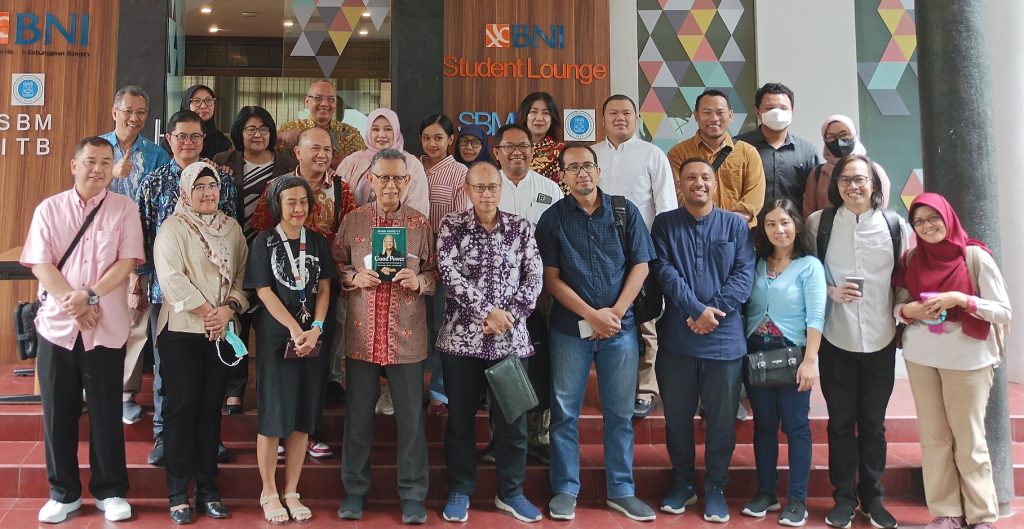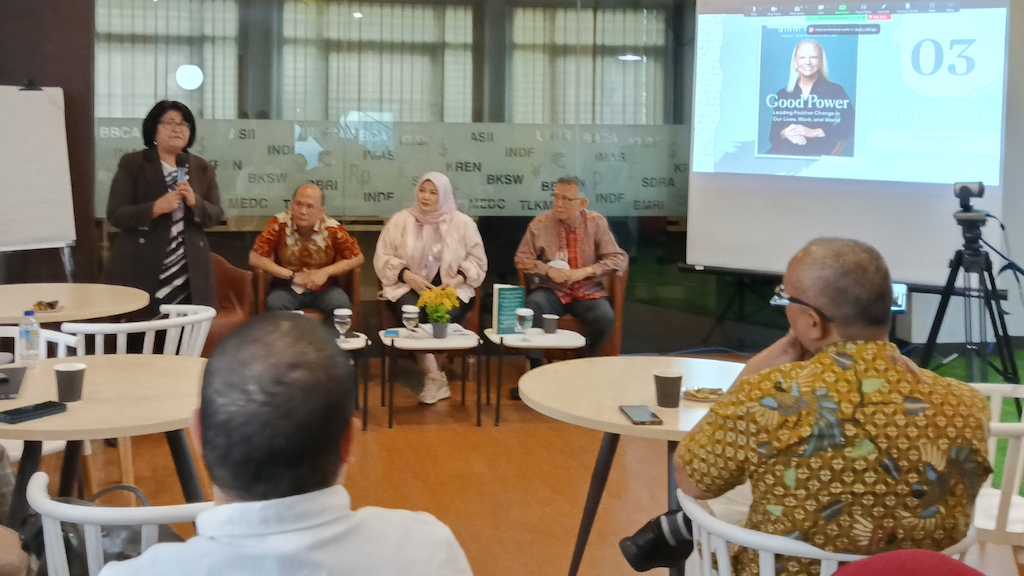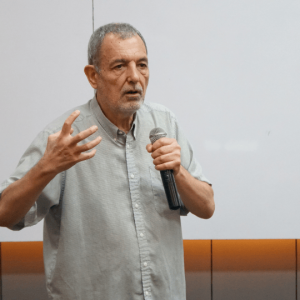SBM ITB conducted a book review session for a book written by Ginni Rometty, the influential former CEO of IBM, entitled Good Power: Leading Positive Change in Our Lives, Work, and World, on Friday (16/6). The book discusses Rometty’s revolutionary concept of leadership to drive positive change in lives, organizations and the world.
Three SBM ITB lecturers discussed the book, Dr Ir. Yuni Ros Bangun, MBA; Donald C. Lanthu, S.T., MBA., PhD; and Dr N. Nurlaela Arief, MBA., MIPR. Prof. Dr Ir Jann Hidajat Tjakraatmadja, M.Eng. guided the discussion.
Yuni Ros Bangun, assigned to discuss “Changing Life”, explained that through the book Rometty takes us on her journey, recalling essential moments in his childhood and the beginning of her career. She explores the challenges her family faced, the sacrifices made, and the valuable lessons he learned from the role models in her life, Baba and Grandma.
These tough women embody the American work ethic, which taught Rometty that hard work, determination, and persistence in the face of limitations are the keys to shaping a future full of potential. Rometty’s own experience underscores the importance of self-discovery, as she realizes the power within himself to make a difference to himself and those she cares about.
Donald C. Lanthu, who discussed the “Changing Work” section, explained that Rometty summarized her extensive experience as a transformational leader by expressing the five principles of “good power.” Each chapter is a revelation, full of practical strategies and engaging anecdotes that illustrate how these principles can be applied to create a culture based on respect, collaboration and progress in organizations. Through her exploration of “good power,” Rometty provides a clear guide for leaders and individuals to explore the complexities of the modern workplace while driving innovation, inclusiveness and positive impact.
Nurlaela Arief, discussing the “Changing Our World” phase, explained that Rometty explains how the principles of “good power” can bridge the gap between opposing forces to unite people around a common goal. Through her advocacy for meaningful change, Rometty provokes us all to step outside our comfort zone, face conflict, and embrace the discomfort of growth. Rometty called for action, a testament to the tremendous impact that individuals armed with “good power” can have on the world.
According to the three reviewers, “Good Power” is not just a book. It is a manifesto for a new era of leadership where respect, inclusivity, and progress are guiding principles. Her insights inspire us to push back the boundaries of self-centred thinking and embrace a broader perspective, including community, societal, and environmental well-being. With “Good Power,” Rometty invites us to become architects of positive change, using the transformative power of “good power” to create a better world for ourselves and future generations.







